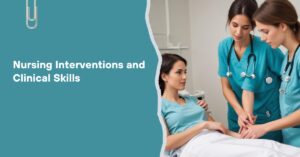Name
Capella University
NURS FPX 4060
Professor’s Name
November 2023
Health Promotion Plan
Table of Contents
ToggleA Health Promotion Plan is a strategic framework designed to improve the health and well-being of individuals, communities, or populations. It involves the systematic assessment of health needs, the establishment of specific health objectives, and the implementation of evidence-supported interventions. This plan plays a pivotal role in public health by mitigating diseases, fostering healthy behaviors, and reducing health inequalities (Al Gunaid et al., 2019). A successful health promotion plan requires clear objectives, collaboration with stakeholders, and a commitment to continual assessment and refinement. In this assessment, we address immunization which is a cornerstone of public health, involving the administration of vaccines to enhance immunity against infectious diseases. It is a crucial component of disease prevention, contributing to reduced morbidity and mortality on a global scale (McClung, 2020). Immunization programs are essential in safeguarding public health by creating herd immunity and limiting the spread of communicable diseases. Vaccines have proven effective in preventing a wide range of illnesses, from childhood diseases like measles to seasonal influenza and more recent threats such as COVID-19.
Immunization
Immunization, as advocated by the World Health Organization (WHO) is a cornerstone of global public health efforts. Extensive research attest to its effectiveness in preventing and controlling infectious diseases. For instance, the widespread use of the measles vaccine has contributed to a significant reduction in measles-related mortality, showcasing the impact of immunization (Thar et al., 2020). Similarly, the introduction of the HPV vaccine has led to a decline in human papillomavirus-related cancers (Issanov et al., 2022). In the United States, the Centers for Disease Control and Prevention (CDC) regularly publishes reports and studies that emphasize the importance of immunization. For example, their Morbidity and Mortality Weekly Report (MMWR) provides critical data and insights on vaccine-preventable diseases and vaccine coverage rates, offering a tangible resource for healthcare practitioners, policymakers, and the public (Ahmad, 2021). The extensive research and awareness campaigns surrounding immunization underline its vital role in safeguarding public health on both a national and global scale. The design of immunization policies is a multifaceted process that relies on data-driven decision-making, economic considerations, stakeholder involvement, and global cooperation. These initiatives collectively aim to create effective and sustainable immunization strategies to protect public health.
Underlying Assumptions
The underlying assumptions regarding immunization encompass several key principles. Immunization assumes the existence of well-established scientific evidence supporting the safety and efficacy of vaccines, underpinning their widespread use. It also assumes a level of public trust in healthcare systems and vaccine delivery mechanisms, acknowledging that individuals will opt for vaccination based on confidence in healthcare authorities (Thar et al., 2020). Additionally, it assumes that achieving high vaccine coverage rates is feasible, recognizing the potential for herd immunity to safeguard those who cannot be vaccinated. Lastly, it assumes the commitment of governments, healthcare providers, and international organizations to maintain robust immunization programs, ensuring the sustained protection of public health. These assumptions form the foundation of effective immunization policies and practices.
Community Health Concerns
Immunization as a health concern is of paramount importance for health promotion within specific populations due to its role in preventing infectious diseases and safeguarding public health. Vaccination programs are essential for reducing the incidence and severity of vaccine-preventable diseases, improving overall health outcomes, and minimizing healthcare costs. Several factors contributing to health in specific populations include socioeconomic status, access to healthcare, and awareness. Immunization programs address health disparities by providing equitable access to vaccines, irrespective of an individual’s socio-economic background (Tur-Sinai et al., 2019). However, challenges related to healthcare access and awareness can hinder vaccination rates in underserved communities, exacerbating disparities. To promote health effectively, it is crucial to ensure that immunization programs are well-funded, accessible, and coupled with public health campaigns to educate and engage the specific population. Tailored interventions that consider cultural, linguistic, and socioeconomic factors can bridge gaps in vaccine coverage and mitigate health disparities.
In summary, the importance of immunization for health promotion in specific populations lies in its capacity to reduce disease burden, improve overall health, and address health disparities. Effective vaccination programs should be inclusive, accessible, and culturally sensitive to ensure equitable protection for all segments of the population.
Several real-life examples of the impact of immunization on current population health data include:
HPV Vaccination: Human papillomavirus (HPV) vaccination has shown a notable reduction in HPV-related cancers. Countries like Australia have reported substantial declines in cervical cancer rates among vaccinated cohorts (Giannone et al., 2022).
COVID-19 Vaccination: In response to the COVID-19 pandemic, mass vaccination campaigns have contributed to a decline in infection rates, hospitalizations, and deaths in various countries, highlighting the potential of immunization in controlling outbreaks (Dinleyici et al., 2020).
These examples underscore the tangible benefits of immunization in current population health data, reinforcing its role in disease prevention and public health promotion.
The onset of the COVID-19 pandemic witnessed a significant surge in the sales and expansion of products related to immunity supplements, common cold, and flu remedies. In 2019, the National Business Journal reported that sales of immunity supplements amounted to approximately $3.4 billion USD. However, by the conclusion of 2020, this figure had increased notably, reaching nearly $6 billion. These supplements are often marketed as immune system enhancers, although it is important to note that some of these claims may lack scientific accuracy or be misleading. Furthermore, there remains a paucity of information regarding potential risks associated with the usage of these products and their constituent ingredients (Crawford et al., 2022).
Health Promotional Goals
Health Promotional Goals are crucial components of health promotion strategies, ensuring that interventions are well-defined, realistic, measurable, and attainable. These goals serve as the foundation for planning and evaluating health promotion efforts. To be effective, health promotional goals should possess the following characteristics:
SMART Goals
This SMART goal is designed to ensure that immunization efforts are Specific, Measurable, Achievable, Relevant and Time-bound.
Specific
Goals should be clearly defined and specific in terms of what is to be achieved, by whom, and by when. This specificity helps in understanding the scope of the goal and the actions required to attain it. For example; enhance vaccine coverage among children aged 0-2 years.
Measurable
Goals should be quantifiable to facilitate assessment and monitoring of progress. This allows for the collection of data and the measurement of outcomes to determine whether the objectives have been met. i.e; achieve a 10% increase in vaccine coverage within the target population over the next 12 months, as measured by immunization records and data from health facilities.
Attainable
Goals should be set at a level that is realistically within reach, given the available resources and capacity. They should challenge but not overwhelm individuals or communities, fostering motivation and a sense of achievement. i.e; collaborate with community health workers to provide vaccination outreach services, address vaccine hesitancy through educational campaigns, and ensure a sufficient vaccine supply.
Realistic
Health promotional goals must be achievable within the context of available resources, capacity, and timeframe. They should align with the existing healthcare infrastructure and the capabilities of the target population. i.e; align the goal with the broader public health objective of reducing vaccine-preventable diseases in the region.
Time-Bound
Health promotional goals should have a defined timeframe for achievement. This provides a sense of urgency and helps in tracking progress over time. i.e; attain the 10% increase in vaccine coverage within the next 12 months, tracking progress through routine data collection and monthly assessments.
These goals are essential for the success of health promotion initiatives, as they ensure that interventions are practical, quantifiable, and can be realized within a specified timeframe (Gilbert et al., 2020). These characteristics contribute to the effectiveness and impact of health promotion efforts.
Conclusion
Immunization plays a pivotal role in enhancing patient health by effectively reducing the burden of vaccine-preventable diseases and improving overall well-being. Through the administration of vaccines, the immune system is primed to recognize and provide protection against a range of infections. The significance of immunization in public health cannot be overstated, as it contributes to the prevention of debilitating illnesses, severe complications, and even mortality (Thar et al., 2020). This research endeavors to explore the multifaceted ways in which immunization reduces disease incidence, ameliorates patient health outcomes, and contributes to the broader public health landscape.
References
Ahmad, F. B. (2021). Provisional Mortality Data — United States, 2020. MMWR. Morbidity and Mortality Weekly Report, 70(14). https://doi.org/10.15585/mmwr.mm7014e1
Al Gunaid, M., Lami, F., & Jarour, N. (2019). A Collaborative Initiative to Strengthen Sustainable Public Health Capacity for Polio Eradication and Routine Immunization Activities in the Eastern Mediterranean Region. JMIR Public Health and Surveillance, 5(4), e14664. https://doi.org/10.2196/14664
Crawford, C., Avula, B., Lindsey, A. T., Walter, A., Katragunta, K., Khan, I. A., & Deuster, P. A. (2022). Analysis of Select Dietary Supplement Products Marketed to Support or Boost the Immune System. JAMA Network Open, 5(8), e2226040–e2226040. https://doi.org/10.1001/jamanetworkopen.2022.26040
Dinleyici, E. C., Borrow, R., Safadi, M. A. P., van Damme, P., & Munoz, F. M. (2020). Vaccines and routine immunization strategies during the COVID-19 pandemic. Human Vaccines & Immunotherapeutics, 17(2), 1–8. https://doi.org/10.1080/21645515.2020.1804776
Giannone, G., Giuliano, A. R., Bandini, M., Marandino, L., Raggi, D., Earle, W., Ayres, B., Pettaway, C. A., McNeish, I. A., Spiess, P. E., & Necchi, A. (2022). HPV vaccination and HPV-related malignancies: impact, strategies and optimizations toward global immunization coverage. Cancer Treatment Reviews, 111, 102467. https://doi.org/10.1016/j.ctrv.2022.102467
Gilbert, A. W., Billany, J. C. T., Adam, R., Martin, L., Tobin, R., Bagdai, S., Galvin, N., Farr, I., Allain, A., Davies, L., & Bateson, J. (2020). Rapid implementation of virtual clinics due to COVID-19: Report and early evaluation of a quality improvement initiative. BMJ Open Quality, 9(2). https://doi.org/10.1136/bmjoq-2020-000985
Issanov, A., Karim, M. E., Aimagambetova, G., & Dummer, T. J. B. (2022). Does Vaccination Protect against Human Papillomavirus-Related Cancers? Preliminary Findings from the United States National Health and Nutrition Examination Survey (2011–2018). Vaccines, 10(12), 2113. https://doi.org/10.3390/vaccines10122113
McClung, N. (2020). The Advisory Committee on Immunization Practices’ Ethical Principles for Allocating Initial Supplies of COVID-19 Vaccine — United States, 2020. MMWR. Morbidity and Mortality Weekly Report, 69. https://doi.org/10.15585/mmwr.mm6947e3
Thar, A. M. C., Wai, K. T., Harries, A. D., Show, K. L., Mon, L. L., & Lin, H. H. (2020). Reported measles cases, measles-related deaths and measles vaccination coverage in Myanmar from 2014 to 2018. Tropical Medicine and Health, 48(1). https://doi.org/10.1186/s41182-020-0191-4
Tur-Sinai, A., Gur-Arie, R., Davidovitch, N., Kopel, E., Glazer, Y., Anis, E., & Grotto, I. (2019). Vaccination uptake and income inequalities within a mass vaccination campaign. Israel Journal of Health Policy Research, 8(1). https://doi.org/10.1186/s13584-019-0324-6








